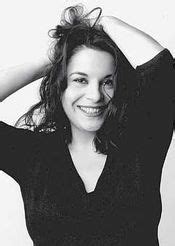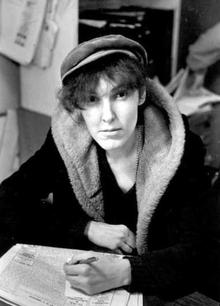Top 194 Loner Quotes & Sayings - Page 4
Explore popular Loner quotes.
Last updated on April 19, 2025.
Reading was like an addiction; I read while I ate, on the train, in bed until late at night, in school, where I'd keep the book hidden so I could read during class. Before long I bought a small stereo and spent all my time in my room, listening to jazz records. But I had almost no desire to talk to anyone about the experience I gained through books and music. I felt happy just being me and no one else. In that sense I could be called a stack-up loner.
Ronald Reagan was notably able to avoid having personal considerations dissuade him from taking decisive actions. This may have arisen in part from his career in motion pictures; it may be related to his being a bit of a loner; it may have related to his focus on those people and principles he sought to serve. What is clear is that this capacity enhanced his effectiveness. It was also a surprise to many people.
Westerns. A period gone by, the pioneer, the loner operating by himself, without benefit of society. It usually has something to do with some sort of vengeance; he takes care of the vengeance himself, doesn't call the police. Like Robin Hood. It's the last masculine frontier. Romantic myth. I guess, though it's hard to think about anything romantic today. In a Western you can think, Jesus, there was a time when man was alone, on horseback, out there where man hasn't spoiled the land yet.
I am an adherent of the ideal of democracy, although I well know the weaknesses of the democratic form of government. Social equality and economic protection of the individual appeared to me always as the important communal aims of the state. Although I am a typical loner in daily life, my consciousness of belonging to the invisible community of those who strive for truth, beauty, and justice has preserved me from feeling isolated.
Dena had always been a loner. She did not feel connected to anything. Or anybody. She felt as if everybody else had come into the world with a set of instructions about how to live and someone had forgotten to give them to her. She had no clue what she was supposed to feel, so she had spent her life faking at being a human being, with no idea how other people felt. What was it like to really love someone? To really fit in or belong somewhere? She was quick, and a good mimic, so she learned at an early age to give the impression of a normal, happy girl, but inside she had always been lonely.
The hardest thing about being an outcast isn't the love you don't receive. It's the love you long to give that nobody wants. After a while, it backs up into your system like stagnant water and turns toxic, poisoning your spirit. When this happens, you don't have many choices available. You can become a bitter loner who goes through life being pissed off at the world; you can fester with rage until one day you murder your classmates. Or, you can find another outlet for your love, where it will be appreciated and maybe even returned.
I was naturally a loner, content just to live with a woman, eat with her, sleep with her, walk down the street with her. I didn't want conversation, or to go anywhere except the racetrack or the boxing matches. I didn't understand t.v. I felt foolish paying money to go into a movie theatre and sit with other people to share their emotions. Parties sickened me. I hated the game-playing, the dirty play, the flirting, the amateur drunks, the bores.
I've dealt with numbers all my life, of course, and after a while you begin to feel that each number has a personality of its own. A twelve is very different from a thirteen, for example. Twelve is upright, conscientious, intelligent, whereas thirteen is a loner, a shady character who won't think twice about breaking the law to get what he wants. Eleven is tough, an outdoorsman who likes tramping through woods and scaling mountains; ten is rather simpleminded, a bland figure who always does what he's told; nine is deep and mystical, a Buddha of contemplation.
Early in my career I was divided because I had the real self underneath: the lawbreaker, the anarchist, the person who swims against the tide, the outsider, the loner, all of that guy. He was my private self, and I had this other side that wanted to be liked in order to do all those things I dreamed of as a little boy. I didn't realize that those things didn't go together until later. And I'm quite sure that my use of acid and peyote helped me accept what was really going on inside of me instead of what I had imposed on myself.
There is a core of loneliness. It's partly existential. Secondly, I was raised a loner. My parents were not there. My father was asked to leave because he couldn't metabolize ethanol. Actually, my mother ran away with us when I was 2 months old and my brother was 5. Real dramatic stuff: down the fire escape, through backyards. So, I sort of raised myself. I was alone a lot and I invented myself - I lived through the radio and through my imagination.
At the beginning of the book [The Dissemblers], Ivy [Wilkes] has a long way to go in order to achieve self-sufficiency. Although she is very independent, even somewhat of a loner, she is very affected by other peoples' opinions. At the opening of the book, her ideas of success and achievement are largely defined by the approval of others; over the arc of the story, I think that begins to change a little.
I'm not much of a self-promoter or anything. It's not something I feel comfortable doing. But sometimes I would get frustrated, I'd think, "You know, this is a good book, how come no one is paying attention to it?" So it's nice to have some recognition. I don't write to put it in a drawer, I hope that people see it. But what am I willing to do for that? I struggle with that a little bit. I try to be accommodating, but I'm pretty much a loner. I'll say this, and it'll sound like bullshit, but it's not: I don't really pay attention to this stuff very much.
Our "society" is not a community, but merely a collection of isolated family units. Desperately insecure, fearing his woman will leave him if she's exposed to other men or to anything remotely resembling life, the male seeks to isolate her from other men and from what little civilization there is, so he moves her out to the suburbs, a collection of self-absorbed couples and their kids. Isolation, further, enables him to try to maintain his pretense of being an individual by being a "rugged individualist", a loner, equating non-co-operation and solitariness with individuality.












